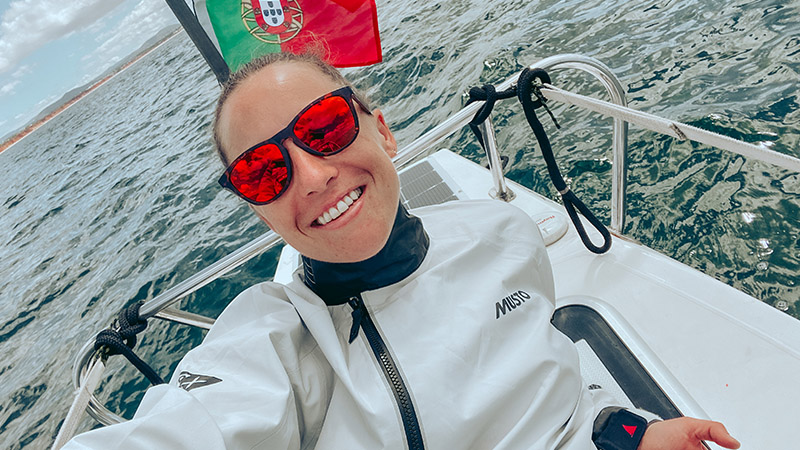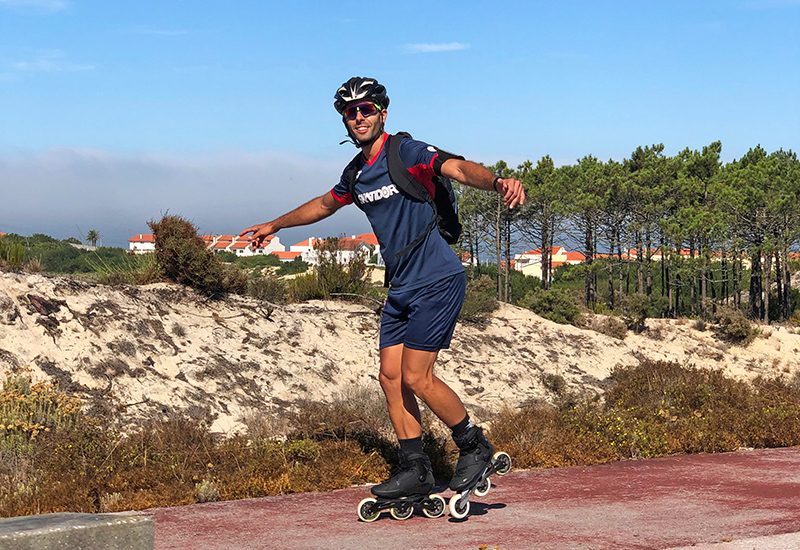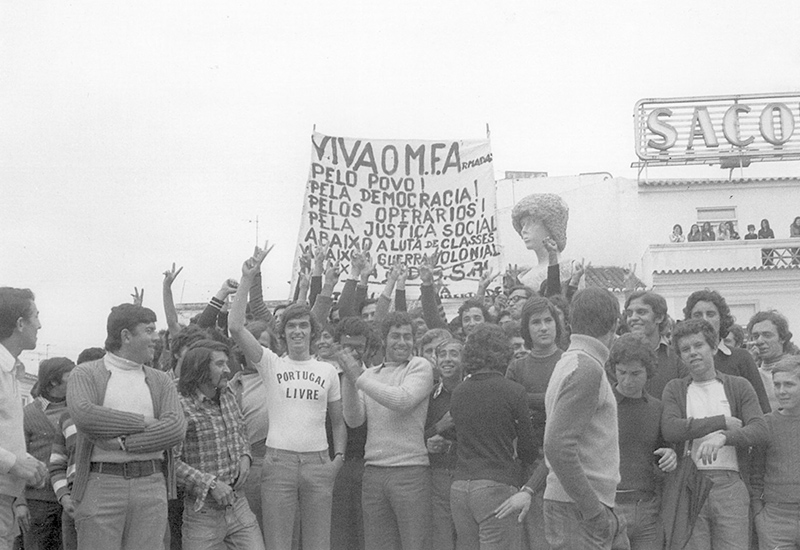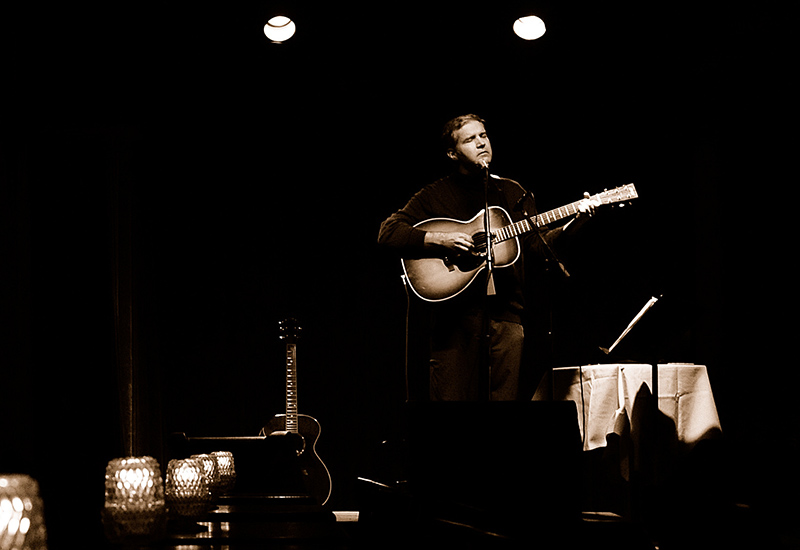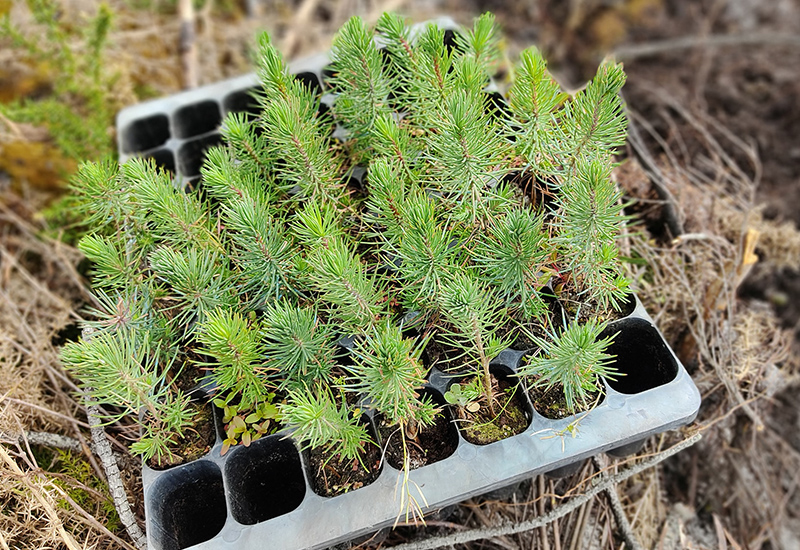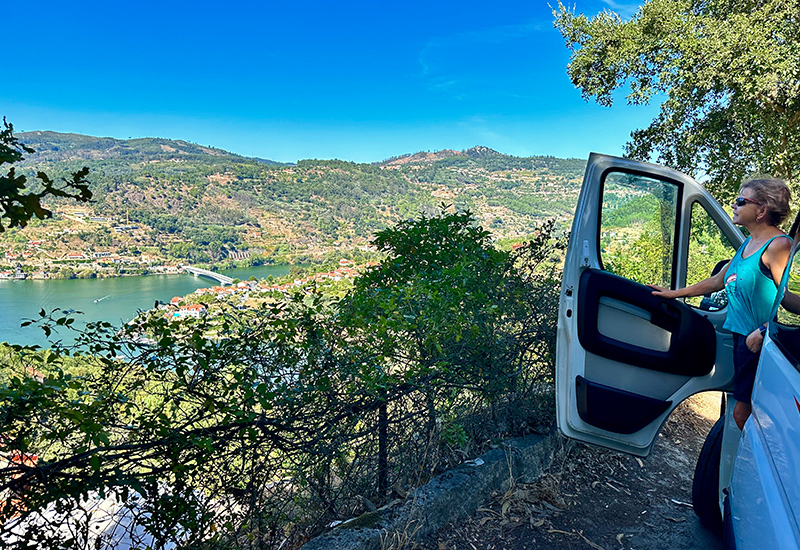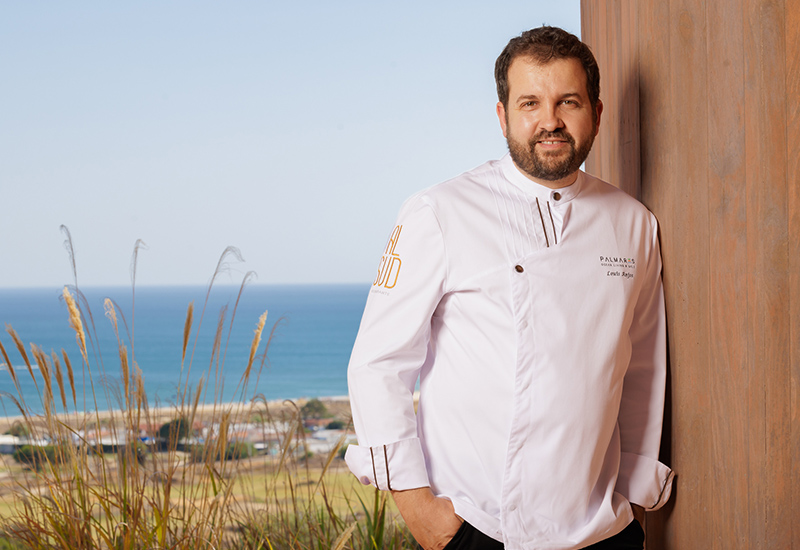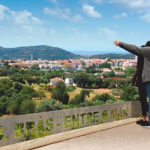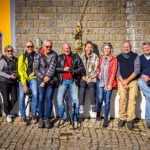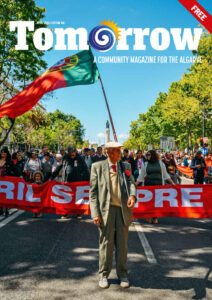Victoria Evans has just flown to Tenerife to prepare to set off on a world record attempt to become the fastest solo woman to row the Atlantic. However, she credits the Algarve with giving her the vital preparation for her endeavour.
By Sophie Sadler
Victoria should have already completed this challenge as she was due to set out in February 2020, but she had to postpone at the last minute due to changes in Spain’s travel restrictions caused by the pandemic. She wants to make sure she doesn’t suffer another setback, so decided to head to her starting point before Christmas, in case any more travel restrictions are implemented. She hopes to find a good weather window at the end of January to begin her journey.
The 34-year-old, London-based lawyer wants to give her epic voyage more significance than a record-breaking attempt. She is using it to establish her campaign Sea Change Sport. Her mission is to address gender inequality in sports, tackling the matter at an industry level by lobbying for changes in policy, culture and quotas to ensure that women’s voices help shape the future of sport, and that opportunities for women in sport vastly increase. She also aims to raise £50,000 for the charity Women In Sport in the process. This challenge comes from a very personal place, as it was Victoria’s own experience with sport as a driver for positive change that inspired her to take on such a monumental challenge.
She describes her childhood as “a touch turbulent”, leading her to suffer from depression and an eating disorder. She certainly was not sporty, but in her mid-twenties, inspired by a friend, she started running. “I found it helpful in terms of managing stress, emotions and looking after myself.” She competed in several half marathons. “It is such an effective tool for self-management because you have a reason to look after yourself.”
After qualifying as a lawyer, she has worked for a number of sports brands and federations, which led to a move to Switzerland. “It opened my eyes to a whole new world of being active in a way I hadn’t considered possible – going into the mountains, having adventures. I established a group of friends who were all very active and encouraged me to join in.” Through both her personal and professional experiences of sport, Victoria has seen the multitude of barriers that still exist for women entering the field.
After returning to the UK in 2018, she wanted to continue her new active lifestyle, and to contribute to driving change. Fate led her to meet someone who was just about to row the Atlantic and that sparked her interest. She signed up to take on the same challenge, learning to row at a club in London before venturing into training in her ocean rowing boat.
Victoria talks of how sport has evolved in a historic cultural landscape that wasn’t always inclusive of women. “Sport is one of the most powerful vehicles for change,” she says, “but millions of women miss out because the industry is not designed by them, or marketed to them.” As part of the Sea Change Sport campaign, she has engaged with five schools across the UK as part of a project she’s calling Sea Change Schools. Each school’s Key Stage 2 age children (eight to ten-year-olds) will collectively complete 3000 miles of activity in January, the same distance that Victoria will row. “I have tried to include state schools who may not normally have access to sporting role models to highlight to the children what is possible. I didn’t come from grand beginnings, but my definition of what is possible has dramatically expanded through the opportunities I’ve had.
For younger people, discipline and a positive attitude and outlook are vital for both physical and mental health.”
The current world record stands at 49 days. The boat that Victoria will call home while at sea was built by Rannoch Adventure. Owned by Dawn Wood, who herself solo rowed the Atlantic, the boat has already seen some good sea miles. An R10 ocean rowing boat, it measures 6.5 m by 1.5 m. With a cabin to sleep in, VHF, satellite phones, charts, a water maker, etc, it has all you need to survive a transatlantic crossing.
Having quit her job prior to postponement in order to train full-time, Victoria took a fixed-term role as Director of Legal at World Sailing in February 2021. Through her connections at World Sailing, she was put in touch with Vilamoura Sailing, who, in conjunction with Vilamoura Marina, sponsored her to train in the Algarve during the summer of 2021. From July to September this year, Victoria enjoyed training rows between Vilamoura and Lagos.
“I had such a good time in the Algarve and was so well looked after everywhere I went. There are strong winds from the west along the coast and you are in Atlantic waters, so it provides fantastic exposure to training conditions and a taste of what I can look forward to on the crossing. It simulates the conditions better than the east coast of the UK, where I had been training prior to that. There is something quite nerve-racking about rowing into the ocean – I had to ensure I tracked the conditions and could get back to the marina each day; it forces you to overcome certain fears. And the Algarve is far sunnier than England!”
Although the aim is to break the record, Victoria acknowledges it is weather dependent. The row is unsupported with no accompanying vessel. Victoria will survive on freeze-dried expedition food and a desalination unit will allow her to process the water she needs. She aims to row 12 to 14 hours a day. Her only luxury is a memory foam pillow and a massage device for her shoulder, which she previously injured. She will also take a few edible treats but keeping the weight of the boat to a minimum is essential.
Victoria navigates using a chart and three autohelm devices to set her course. They need to be rotated every few hours as they can overheat. She uses a compass to check she is following the correct path. She will also have the expertise of the Team GB weather router, Simon Rowell, who she will be in touch with each day via satellite phone or by email in order to anticipate the weather and choose the correct route.
All going well, she will finish in Barbados, where she will be met by her family and friends. “You are never fully ready for a challenge of this size, but I have done more on the water training than most. I started learning about the boat, then did overnights, then three days, building up to five days. In Portugal, I rowed most days. It’s about seamanship as much as it is physical effort.”
She is not worried about being lonely as she states that she is comfortable in her own company, but she does worry about something going wrong with the boat. “I would be frustrated if I had to stop for technical issues. I also have to get into the water to clean the bottom of the boat, which is quite daunting; obviously, I will be tied on.”
Victoria believes that the lure of the Atlantic will bring her back to the Algarve when she finishes her adventure, but for now, her sights are set on using her battle with the waves to battle gender inequality in sport. Tomorrow wishes her the best of luck.
You can follow the campaign via www.seachangesport.com and you can donate to Victoria’s fundraising here: www.gofundme.com/f/seachangesport
